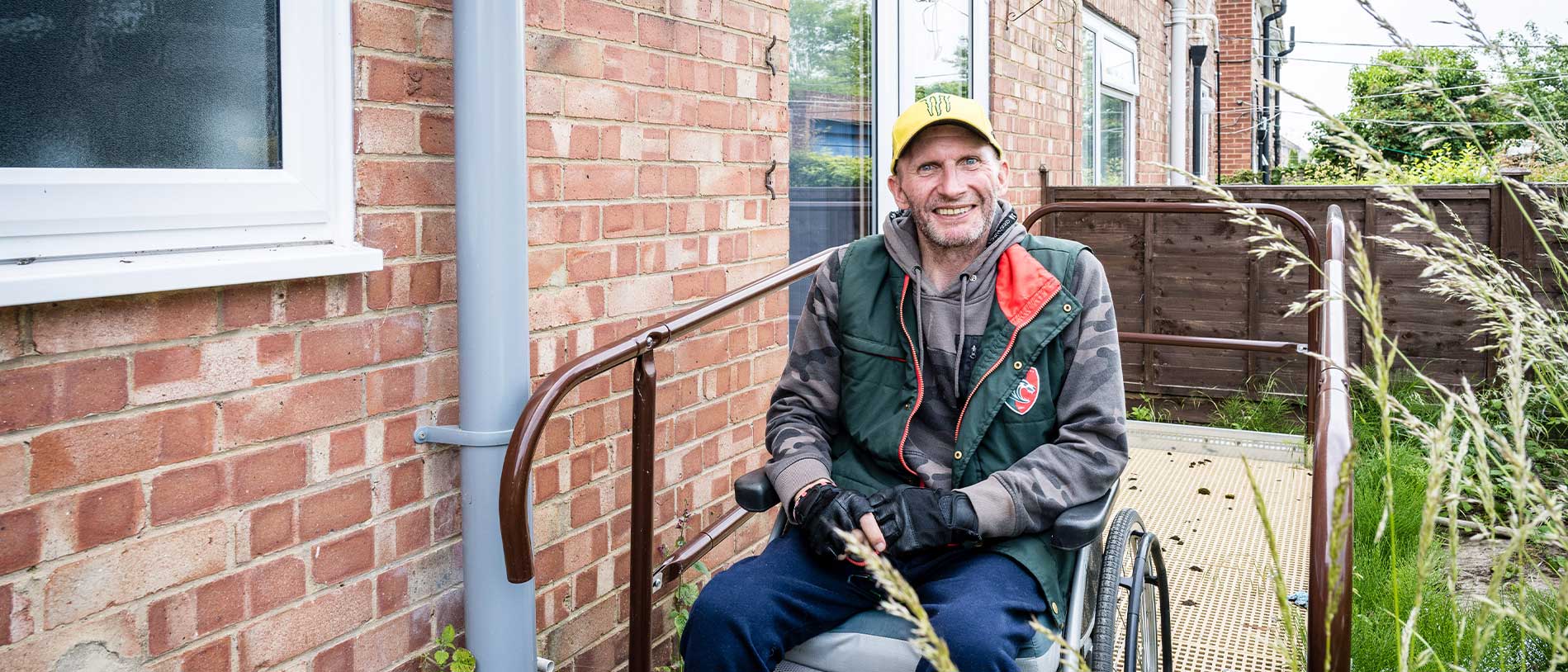Cormoran Strike, the hero of Robert Galbraith’s bestselling Strike series, is a grizzled Afghanistan veteran who uses his background in the military police to solve crimes. In this article, our ambassador Barney Gillespie discusses helping to bring Strike to life for the BBC TV adaption.
It was a cold December day in 2016 when Barney received a telephone call. A TV company was looking for an amputee veteran to act as an advisor for a new crime series. The main character, Cormoran Strike, was a Private Detective who had lost a leg while serving with the Special Investigation Branch (SIB) in Afghanistan.
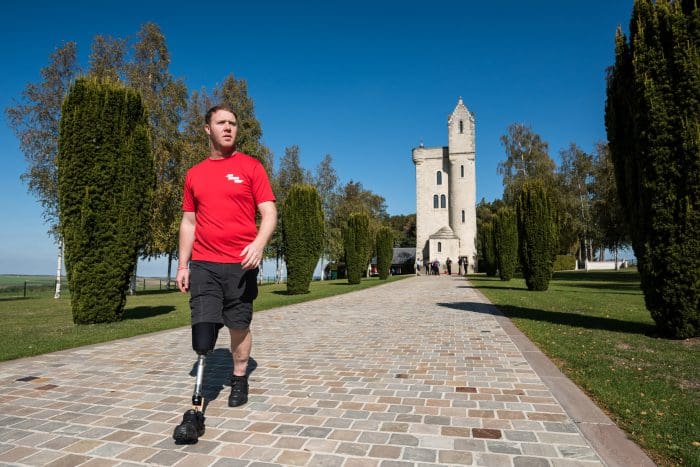
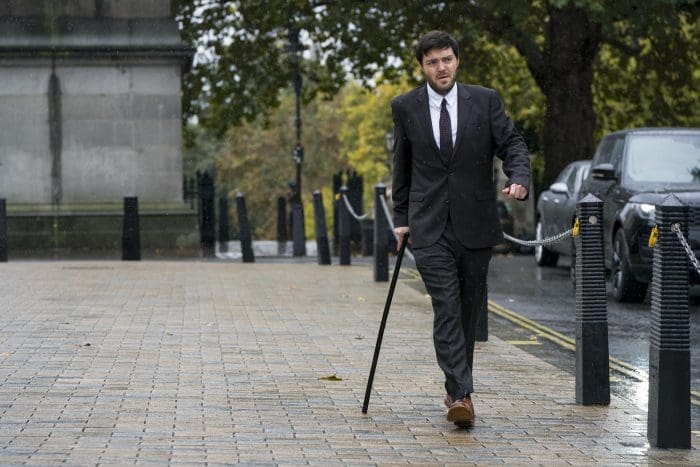
“That was the first time I heard about the series. But when I read the script, it was like I was reading things from my own life. There’s a bit where Strike is recovering from the amputation in hospital and his very attractive girlfriend walks in. All the guys are giving him a hard time, telling him he’s punching above his weight. That happened to a guy in my ward!”
There were other correlations. Like Strike, Barney sustained an operational injury in Afghanistan. In Barney’s case, he was serving with the Royal Irish Regiment as a Corporal Section Commander in 2010 when he stood on an IED and lost the lower part of his right leg in the blast. Reflecting on his injury, Barney says:
“The Army isn’t a job, it’s a whole way of life. And to be 22 years old and lose that was probably the hardest thing of all.”
Barney endured three operations before being transferred back to the UK, where he learnt to walk again using a prosthetic leg. Our charity has supported Barney at various points over the years and he is now a tireless ambassador, speaking at events and taking on fundraising challenges across Northern Ireland. His work for military charities was recognised with a British Empire Medal in 2017.
Arriving on set
Following the telephone conversation, the TV company, Brontë Film and TV, arranged for Barney to fly to London. “I met with the director and all the different departments – everything from costume to special effects – just going through what life was like in the Army, what it was like being blown up, the struggles of rehab.” Barney also worked with lead actor Tom Burke, advising him on posture and movement: “We made a little device for his ankle to remind him which leg had been injured, then we worked through all the different movements – walking on the flat; walking upstairs; down slopes; running. I have a lot of respect for Tom because he picked it up so quickly.”
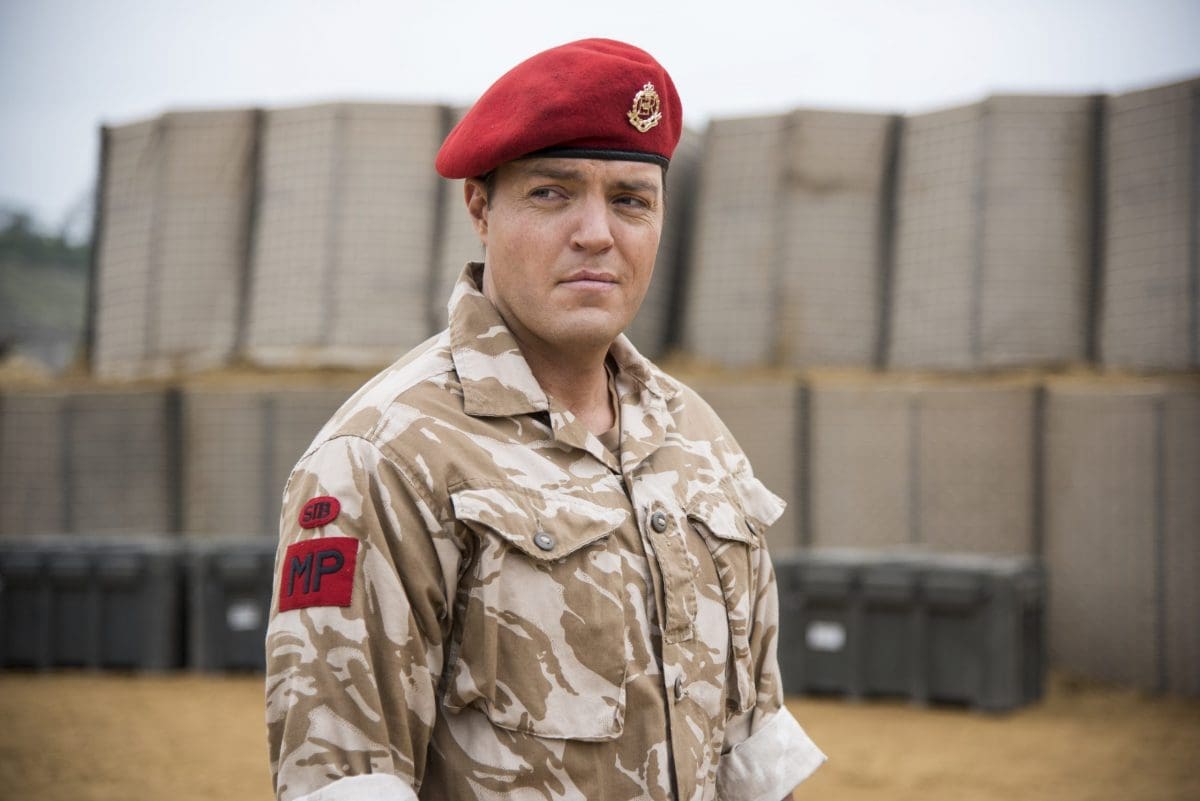
Barney was struck by how intent Tom and the rest of the team were on portraying the part of an amputee veteran authentically and respectfully: “It’s the little things – the way he steps off a kerb, or walks through a doorway. As an amputee, you so often see things on screen that are completely unbelievable. Either they’re walking with this massive, pronounced limp, or they do something and you think ‘no, that would never happen.’”

“In the first series, he’s a few years after injury and he’s still coming to terms with it. There’s a bit where he strains his leg and the stump is sore, so he has to remove the prosthetic. He needs to go to the loo, but rather than put the prosthetic back on he just shuffles across the floor on his bum. That’s what it’s like in the early days – because you can’t wear the leg all the time. It’s too sore. It’s more of a hassle to jump in a wheelchair, so it’s easier to just hop, or shuffle.”
Writing a soldier
The TV series is adapted from the Cormoran Strike books, written by Robert Galbraith, a pseudonym of J.K. Rowling. The first book, The Cuckoo’s Calling, was published in 2013, and the fifth book, Troubled Blood, has recently been released. Barney read the first book after the script and was struck by how accurately it reflected life in the Army. “The level of detail is just incredible – even down to the words she [J.K. Rowling] uses. Soldiers have their own lingo and their own words for certain things, and she captures that.”
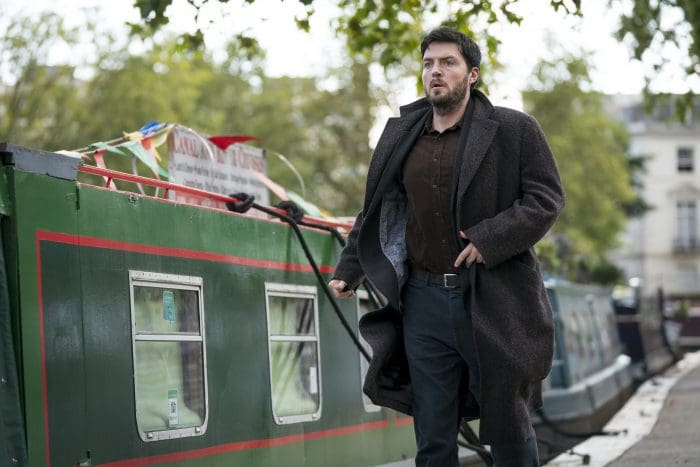
In fact, the experience of writing the book inspired J.K. Rowling to make a donation to our charity, which she references in a quote from 2013: “This donation was made to ABF The Soldiers’ Charity, partly as a thank you to the Army people who helped with my research, but also because writing a hero who is a veteran has given me an even greater appreciation and understanding of exactly how much this charity does for ex-servicemen and their families, and how much that support is needed.”
Life after injury
Barney has continued to assist with the BBC adaptation, which is now in its fourth season. As time has gone on, he has seen Strike develop as he grows in confidence and familiarity with his prosthetic. This, he says, is realistic – mirroring his own journey of recovery and rehabilitation.
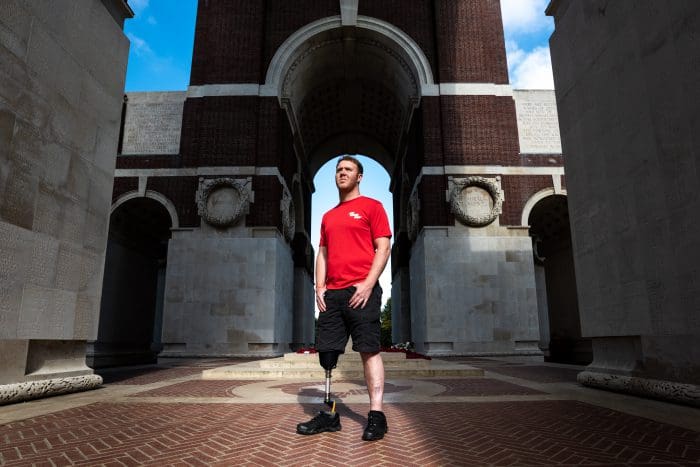
“At the start, in the very early days, it took a bit of time to accept. I would play it over and over again in my mind, every day. Now I can accept the fact that I stood on the IED and lost my leg because of it.”
When asked if he had any words of wisdom for other individuals coming to terms with life-changing injuries, Barney says: “Try and find something you feel strongly about and stick at it. Don’t hold back because of your injury. You might have to adapt; you might have to change. But still try and find that thing you love and go for it.” This, for Barney, is the central message behind Strike.
“For me, it’s about what you can do even though you’ve been injured – even though you’ve got a prosthetic leg. That’s what I took away from it.”

